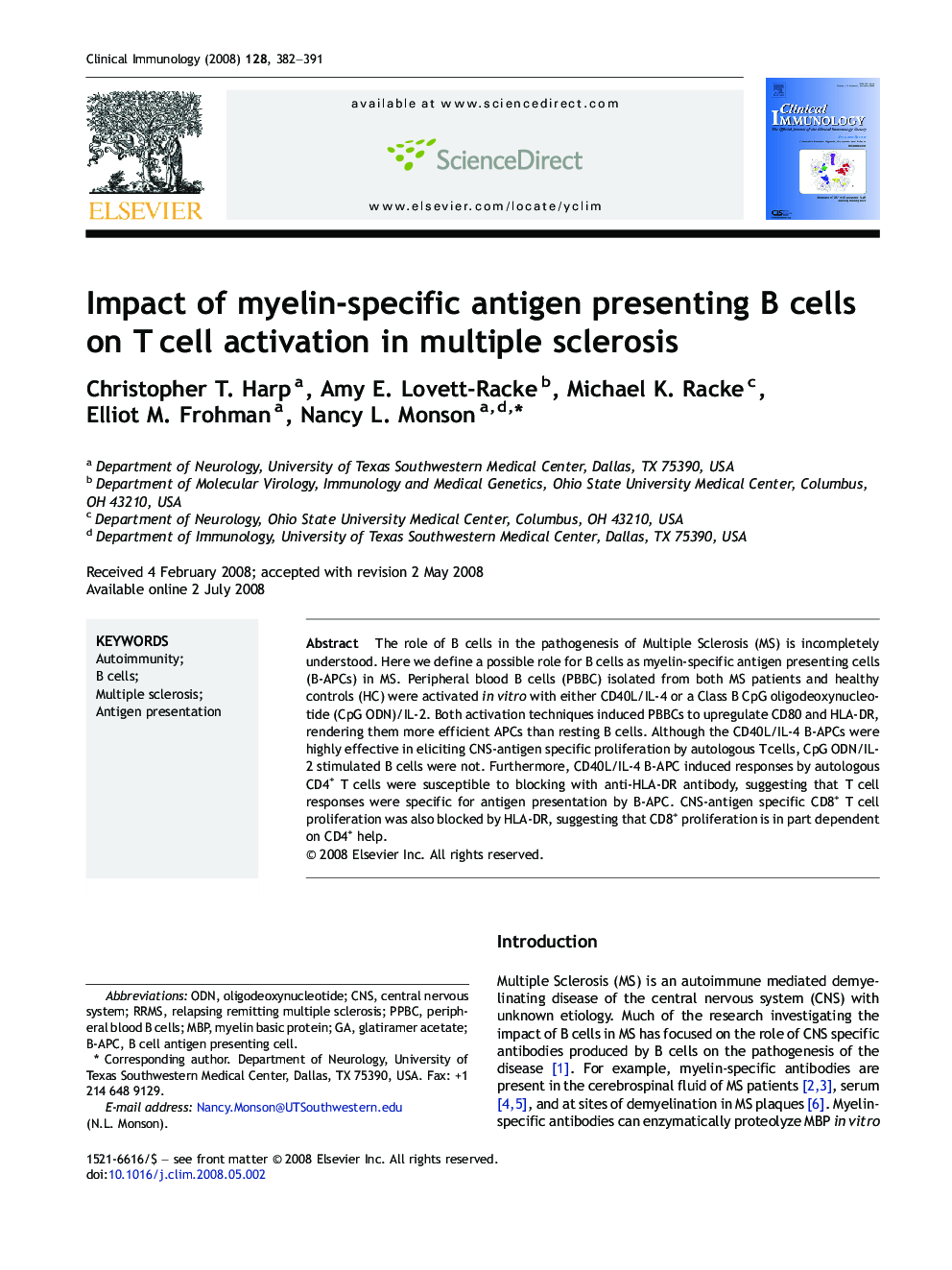| Article ID | Journal | Published Year | Pages | File Type |
|---|---|---|---|---|
| 3258276 | Clinical Immunology | 2008 | 10 Pages |
The role of B cells in the pathogenesis of Multiple Sclerosis (MS) is incompletely understood. Here we define a possible role for B cells as myelin-specific antigen presenting cells (B-APCs) in MS. Peripheral blood B cells (PBBC) isolated from both MS patients and healthy controls (HC) were activated in vitro with either CD40L/IL-4 or a Class B CpG oligodeoxynucleotide (CpG ODN)/IL-2. Both activation techniques induced PBBCs to upregulate CD80 and HLA-DR, rendering them more efficient APCs than resting B cells. Although the CD40L/IL-4 B-APCs were highly effective in eliciting CNS-antigen specific proliferation by autologous T cells, CpG ODN/IL-2 stimulated B cells were not. Furthermore, CD40L/IL-4 B-APC induced responses by autologous CD4+ T cells were susceptible to blocking with anti-HLA-DR antibody, suggesting that T cell responses were specific for antigen presentation by B-APC. CNS-antigen specific CD8+ T cell proliferation was also blocked by HLA-DR, suggesting that CD8+ proliferation is in part dependent on CD4+ help.
